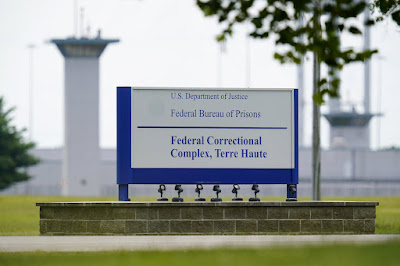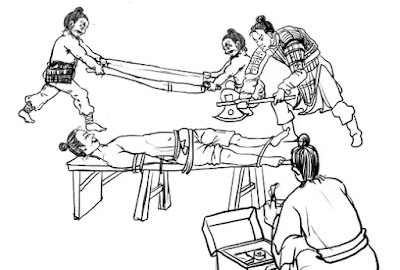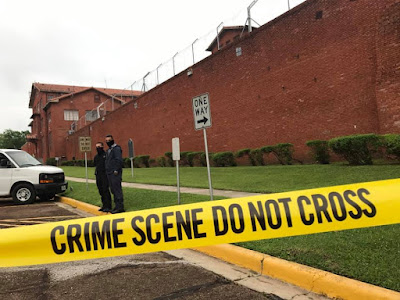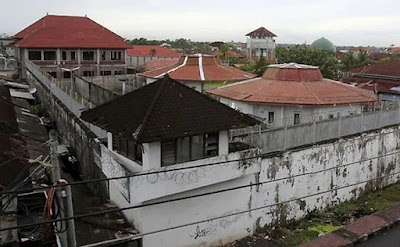Urging the Texas Supreme Court to allow prison officials to continue hiding the identity of an execution-drug supplier, a lawyer for Texas argued Wednesday that unmasking the pharmacy could endanger the company’s employees and the state’s ability to put prisoners to death.
The pharmacy, in an urban area and open to the public, is a “soft target” for any frustrated death penalty opponent who believes violence could deter companies from selling execution drugs to the state, Ari Cuenin, an assistant solicitor general for Texas, told the court during oral arguments in Austin.
Defense lawyers representing death row inmates already were given all pertinent information about the pentobarbital doses sold to Texas for use in executions, including testing on potency and purity, when the legal challenge began in 2014, Cuenin said.
“The only piece of information that is left in this case is the one piece of information that law enforcement needs to provide any measure of safety to the pharmacy that is involved in this case,” he said. “Its only defense is anonymity.”
In Supreme Court briefs, Attorney General Ken Paxton’s office has characterized the legal fight as a “collateral attack on the death penalty” by those who want to disrupt the state’s ability to administer the death penalty.
But Phil Durst, a lawyer for the 3 defense attorneys who sought the information while representing death row inmates in 2014, said in legal briefs that the state’s “sky is falling” worries were exaggerated because there has never been any violence, or threat of violence, directed at a lethal-drug supplier that was known to the public in Texas or any other state.
Speaking to the court Wednesday, Durst said the state’s open records laws already allow government-held information to be kept secret if its release would produce a substantial threat of physical harm.
Mere worries about possible violence, like those raised by prison officials, are not enough, he said.
“They can’t have a vague assertion of risk, and ... it can’t be just a possible threat of physical harm. It can’t be a risk of public protest, criticism or lost business,” Durst told the court. “It can’t even be a substantial threat of property damage, although there is no evidence of property damage anywhere, in any state on earth, involving this.”
What prison officials want is a court ruling that allows them to withhold public information based on worries of possible harm, and that would go too far, he argued.
Durst said 3 other points were important to consider:
• Prison officials were directed to identify the drug supplier used in 2014, and that pharmacy is apparently no longer supplying the state, so revealing its name cannot be a safety threat.
• If recent media reports naming a Houston pharmacy as the state’s supplier were accurate, “there cannot be a substantial threat of physical harm because the name is already out there,” he said.
• The identity of execution drug suppliers is required to be kept secret under a law passed by the Legislature in 2015, so the case is about a small “slice of time” that does not affect current or future suppliers, Durst said.
When Supreme Court Justice Paul Green asked the state’s lawyer if the 2014 pharmacy was still supplying execution drugs to the state, Cuenin said he didn’t know.
What is important, Cuenin added, is that the court establishes a standard that lets law enforcement articulate how releasing certain information to the public can lead to violence or other harm.
“Here it is equally intuitive and straightforward that someone might want to do harm to individuals who provide the thing the state needs to carry out the death penalty,” he said.
Chief Justice Nathan Hecht pushed back, noting that there is no record of “actual, threatened violence” against execution drug suppliers.
“The way law enforcement has to look at risk in this case has to account for the fact that every past supplier identified has stopped producing lethal injection drugs,” Cuenin said.
But Justice Jeff Boyd jumped in, saying open records law allows governments to withhold information that could lead to physical harm, not protect companies from bad publicity, boycotts or threats of economic harm.
Law enforcement experts, Cuenin replied, have identified a safety risk in this case.
“There are a small handful of other issues that activists have used actual violence to carry out attacks to try to end that activity when other means of protest have proven unsuccessful. For some activists, the goal is ending the activity by any means necessary. In the death penalty context, the goal is to end the death penalty, and every supplier that backs out is one step closer,” he said.
The court is expected to issue its opinion on the case before the end of June.
Source: Austin American-Statesman, January 24, 2019
⚑ | Report an error, an omission, a typo; suggest a story or a new angle to an existing story; submit a piece, a comment; recommend a resource; contact the webmaster, contact us:
deathpenaltynews@gmail.com.
Opposed to Capital Punishment? Help us keep this blog up and running! DONATE!
"One is absolutely sickened, not by the crimes that the wicked have committed,
but by the punishments that the good have inflicted." -- Oscar Wilde






.jpg)





